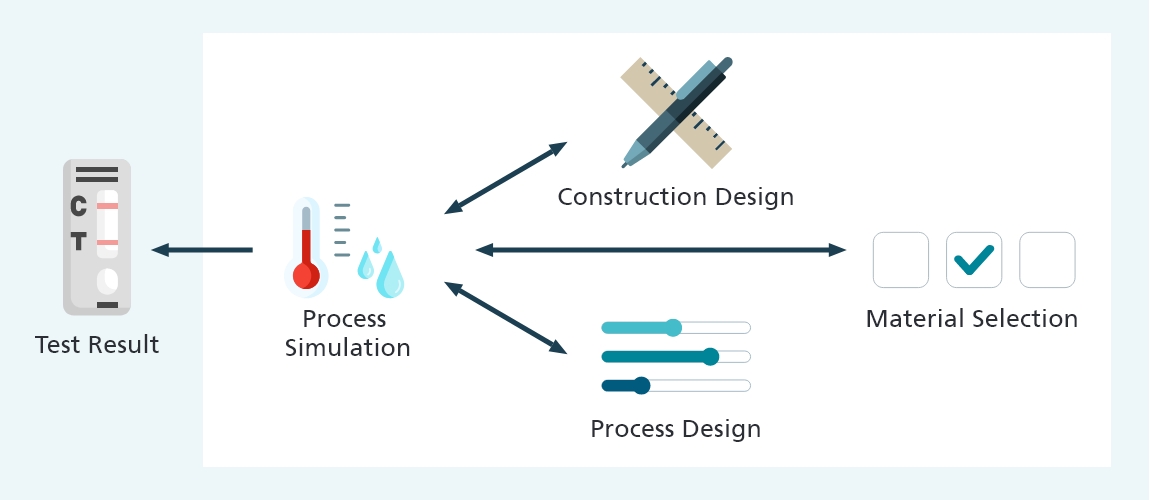Laboratory-based PCR tests are the most reliable method for detecting pandemic virus infections such as Covid-19. However, these test systems cannot be used close to people and their use is therefore time-consuming. They must be developed individually for the virus in question, making them costly to use.
Virtual Development of an Optimal Test Design
In the FAST-MoPPs project, we are working with the Fraunhofer Institute for Microengineering and Microsystems IMM to develop the best possible design for a mobile PCR test. The design process includes the selection of suitable materials and the determination of appropriate geometry and process parameters. The design should enable cost-effective production of the test, allow mass deployment at the point of care, and ensure meaningful test results. This means that the tests do not have to be taken to a central laboratory, but are used and evaluated in the hospital directly on the ward, in the practice or pharmacy.

